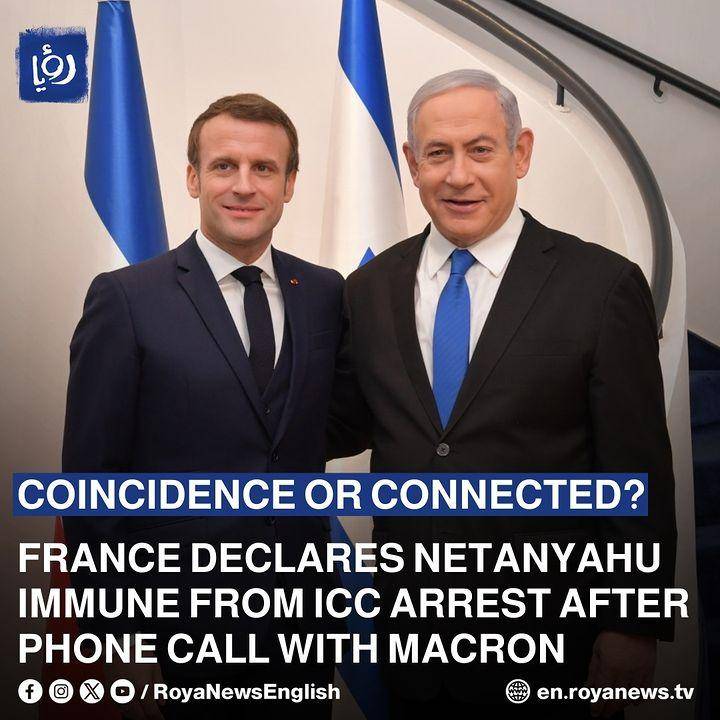Is Netanyahu Immune from ICC Arrest Warrant, as France Claims?
On November 21, 2023, the International Criminal Court (ICC) issued arrest warrants for Israeli Prime Minister Benjamin Netanyahu and former Defense Minister Yoav Gallant, accusing them of potential war crimes and crimes against humanity linked to Israel's actions in Gaza. The announcement sparked a wave of reactions across Europe, with leaders promising to enforce the ICC’s decision if Netanyahu were to enter their countries. However, France has raised an interesting legal point, suggesting that Netanyahu might be immune from arrest due to Israel’s non-membership in the ICC.
France’s Position on Netanyahu’s Immunity.
Initially, France stated its commitment to uphold the ICC’s arrest warrants. However, this stance shifted when French officials suggested that Netanyahu might enjoy immunity under certain conditions. According to France’s Ministry for Europe and Foreign Affairs, since Israel is not a party to the Rome Statute that established the ICC, Netanyahu and other Israeli officials may be protected from arrest due to diplomatic immunity.
The crux of the French argument lies in Article 98 of the Rome Statute, which stipulates that states should not act in a way that violates international law, particularly regarding diplomatic immunity. This provision allows countries to resist complying with ICC warrants if it would breach diplomatic protections granted under international law. In this case, France’s position hinges on the belief that Netanyahu's immunity as a sitting head of government could supersede the ICC’s authority.
The Legal Reality: No Immunity for Netanyahu.
Despite France’s claims, Netanyahu is not immune from the ICC’s jurisdiction. The Rome Statute, specifically Article 27, makes it clear that no one—regardless of their official capacity—is exempt from criminal responsibility. It states that the court’s rulings apply equally to all individuals, and in no case can a person be shielded from prosecution based on their position, such as being a head of state.
Moreover, France, as a signatory to the Rome Statute, has a legal obligation to cooperate with the ICC, including enforcing arrest warrants. Yasmine Ahmed, the UK director of Human Rights Watch, emphasized that this duty extends to arresting individuals named in ICC warrants, regardless of their diplomatic status or their country’s membership in the court.
Why the Confusion?
France's shift in rhetoric seems to stem from a nuanced interpretation of international law. While the ICC has the authority to issue warrants for anyone, including sitting leaders, the complexity of diplomatic immunity adds a layer of difficulty. Countries must balance their international commitments with national interests and legal frameworks.
However, the ICC’s mandate to hold individuals accountable for crimes such as genocide, war crimes, and crimes against humanity is unequivocal, and the court’s reach is intended to be universal. If the ICC deems Netanyahu culpable, it is within its right to seek his arrest, regardless of his official status or the fact that Israel is not a member state.
Conclusion.
In conclusion, while France’s legal stance on Netanyahu’s immunity may spark debate, the International Criminal Court’s jurisdiction remains clear: no one, including heads of state, is immune from accountability for war crimes. France may be exploring diplomatic nuances, but the overriding principle of international justice is that individuals who commit grave crimes must face the consequences, regardless of their position or the political climate. Whether or not Netanyahu will face arrest depends on the willingness of other countries to enforce the ICC's warrants, but the legal framework leaves little room for immunity in such cases.
By keeping up with developments like this, readers can better understand the complex intersection of international law, diplomacy, and justice.



No comments yet
Be the first to share your thoughts!